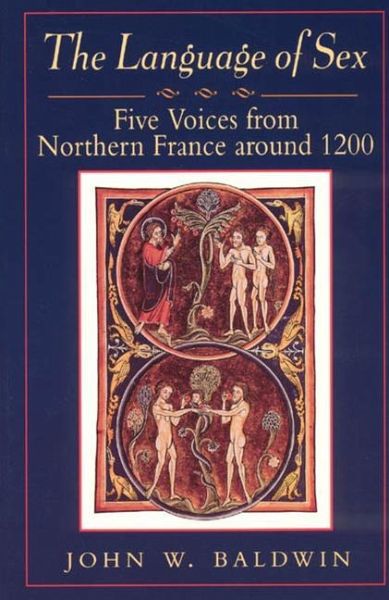Nicht lieferbar

The Language of Sex
Five Voices from Northern France Around 1200
Versandkostenfrei!
Nicht lieferbar
This innovative study by a premier scholar of the Middle Ages brings together widely divergent discourses to fashion an unusually provocative, comprehensive picture of sexual language and attitudes at a particular time and place in the medieval world. John Baldwin introduces five representative voices from the turn of the twelfth century in northern France: Pierre the Chanter speaks for the theological doctrine of Augustine; the Prose Salernitan Questions, for the medical theories of Galen; Andre the Chaplain, for the Ovidian literature of the schools; Jean Renart, for the contemporary romance...
This innovative study by a premier scholar of the Middle Ages brings together widely divergent discourses to fashion an unusually provocative, comprehensive picture of sexual language and attitudes at a particular time and place in the medieval world. John Baldwin introduces five representative voices from the turn of the twelfth century in northern France: Pierre the Chanter speaks for the theological doctrine of Augustine; the Prose Salernitan Questions, for the medical theories of Galen; Andre the Chaplain, for the Ovidian literature of the schools; Jean Renart, for the contemporary romances; and Jean Bodel, for the emerging voices of the fabliaux. Juxtaposing their views on a range of essential subjects, including social position, the sexual body, desire and act, and procreation, Baldwin allows us into the discussion of sexuality inside the church and schools of the clergy, in high and popular culture of the laity. The result is a fascinating dialogue of how these representatives agreed or disagreed with, ignored, imitated, or responded to each other at a critical moment in the development of European ideas about sexual desire, fulfillment, morality, and gender. This heterogeneous discussion also offers a startling glimpse into the construction of gender specific to this moment, when men and women enjoyed equal status in sexual matters, if nowhere else. In a pervasively patriarchal society, where male dominance was virtually unquestioned, sexual relations appear here as an exception. In varied ways, each spokesman argues for the equality of men and women in sexual matters, a proposition that received scientific undergirding from the Galenic theory of the two sperm distributedbetween male and female - and that would give way in the thirteenth century to the Aristotelian theory of the single male sperm. The turn of the twelfth century thus represented a last privileged moment for gender equality for centuries to come. Taken together, the five voices in this book extend their reach, encompass their subject, and point to a center where social reality lies. By articulating language at its varied depths, this remarkable study takes its place alongside groundbreaking works by James Brundage, John Boswell, and Leah Otis in extending our understanding of sexuality and sexual behavior in the Middle Ages.




